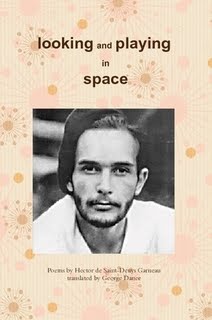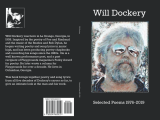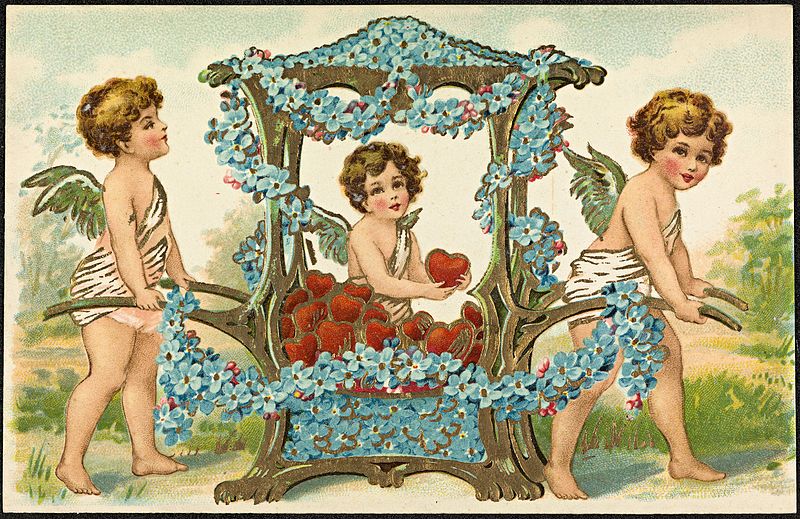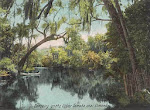Romance Novel
I
You’re never serious at 17.
One great night, full of pints and lemonade,
You’ve had enough of cafés, so you stroll
Beneath green lime trees on the promenade.
The lime trees smell so good at night in June!
Sometimes the air’s so soft it makes you blink.
The wind from off the town is charged with noise
And smells of grape, of ale and stronger drink . . .
II
Look there, you see a tiny handkerchief
Of dark blue, framed by branches in the night,
Pierced by a hapless star that melts away
With one soft shudder, beautifully white . . .
You’re 17! In June! It gets you high
—
The sap’s champagne: it makes your whole head ring . . .
You ramble
— suddenly you feel a kiss
That flutters on your lips like a live thing . . .
III
Below the halo of a pale street lamp,
Your heart creates a novel, going mad
Because a young miss stopped to sneak a glance
Beneath the menacing shadow of her dad . . .
And just because she thinks you’re such a child,
She trots on by and swings her little hips
And gives a shrug that slugs you in the gut,
While cavatinas die upon your lips . . .
IV
Now you’re in love
— till August anyway.
You’ll make her laugh! You’ll write her poetry!
But still you’re shunned as if you tasted bad
Until, one night, the dear one writes to thee!
That night you wander back to the cafés.
You order up more pints and lemonade . . .
You’re never serious at 17
When limes grow green above the promenade.
---
Arthur Rimbaud
translated by George J. Dance, 2009
from Doggerel, and other doggerel,
2015
 [Romance Novel by George Dance [translation of "Roman" by Arthur Rimbaud] is licensed under a Creative Commons Attribution-ShareAlike 3.0 Unported License
[Romance Novel by George Dance [translation of "Roman" by Arthur Rimbaud] is licensed under a Creative Commons Attribution-ShareAlike 3.0 Unported License]
Permissions beyond the scope of this license may be available at
http://gdancesbetty.blogspot.com/.
Roman
I
On n'est pas sérieux, quand on a dix-sept ans.
- Un beau soir, foin des bocks et de la limonade,
Des cafés tapageurs aux lustres éclatants !
- On va sous les tilleuls verts de la promenade.
Les tilleuls sentent bon dans les bons soirs de juin !
L'air est parfois si doux, qu'on ferme la paupière ;
Le vent chargé de bruits - la ville n'est pas loin -
A des parfums de vigne et des parfums de bière . . .
II
-Voilà qu'on aperçoit un tout petit chiffon
D'azur sombre, encadré d'une petite branche,
Piqué d'une mauvaise étoile, qui se fond
Avec de doux frissons, petite et toute blanche . . .
Nuit de juin ! Dix-sept ans ! - On se laisse griser.
La sève est du champagne et vous monte à la tête . . .
On divague ; on se sent aux lèvres un baiser
Qui palpite là, comme une petite bête . . .
III
Le coeur fou Robinsonne à travers les romans,
Lorsque, dans la clarté d'un pâle réverbère,
Passe une demoiselle aux petits airs charmants,
Sous l'ombre du faux col effrayant de son père . . .
Et, comme elle vous trouve immensément naïf,
Tout en faisant trotter ses petites bottines,
Elle se tourne, alerte et d'un mouvement vif . . .
- Sur vos lèvres alors meurent les cavatines ...
IV
Vous êtes amoureux. Loué jusqu'au mois d'août.
Vous êtes amoureux. - Vos sonnets La font rire.
Tous vos amis s'en vont, vous êtes mauvais goût.
- Puis l'adorée, un soir, a daigné vous écrire ! . . .
- Ce soir-là,... - vous rentrez aux cafés éclatants,
Vous demandez des bocks ou de la limonade . . .
- On n'est pas sérieux, quand on a dix-sept ans
Et qu'on a des tilleuls verts sur la promenade.
--
Arthur Rimbaud
1870























